

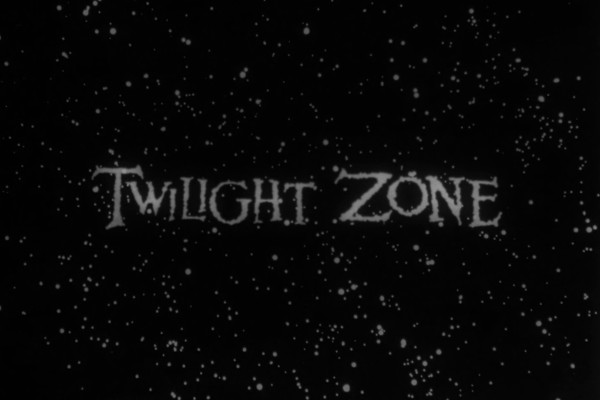
The final season aired from September 1963-June 1964 and is available to buy on Blu-Ray from Amazon. Please join me in ranking the fifth season from worst to best. Please note that while an effort has been made to avoid excess spoilers in this article, some major plot points are inevitably discussed in some of the entries.
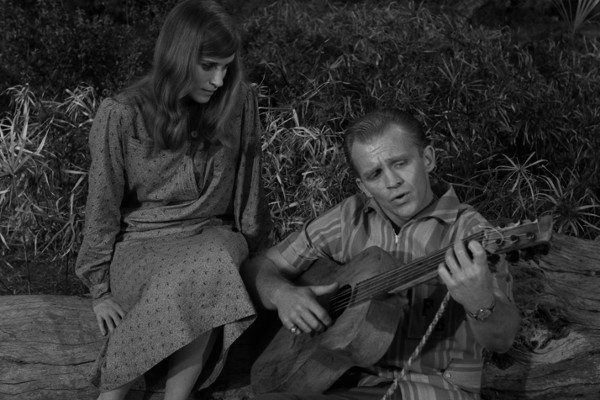
The sole Twilight Zone script of Anthony Wilson, this tale of a rockabilly singer looking for a new song was the last episode to enter production. The number of season five entries that bring 1950s-style characters to life show a series that had lost touch with the cultural landscape; featuring a proto-Eddie Cochran three months after The Beatles had appeared on Ed Sullivan.
The presence of singer Floyd Burney's grave comes a little over six minutes into the episode, making the thinly-plotted proceedings that follow something of a washout. Having a lead character find out they're really dead all along is far from unique to the Twilight Zone - it's not even the first time this season that it takes place - but never before has it been so clearly signposted so as to obliterate any intrigue. Add to this arguably the most obnoxious lead character in the entire programme and it's an inessential entry. There are suggestions that the episode has a bit more to say on an existential and symbolic level, and that such a rating of the episode is a surface reading, but such elements are muddled and confused.
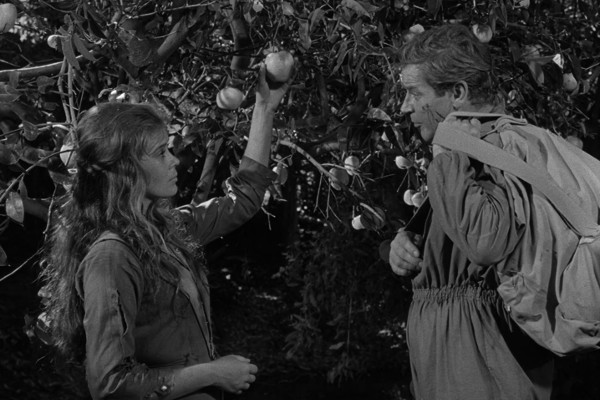
Although these reviews attempt to avoid spoilers as much as they can while discussing the episodes, with this one it's almost impossible: a space explorer named Adam crash lands on a planet where he meets an alien called Eve. It's almost impossible to tell just how much of an SF clichè this was, even at the time, though Brian W. Aldiss coined the phrase "Shaggy God story" for SF biblical tales in October 1965, so it must have been fairly common even then.
Serling was reputed to have asked Ray Bradbury for advice on SF before the series even began, and, whatever the truth of the matter, this one doesn't show Rod having a sophisticated grasp of the genre. Sadly, while Serling was a fine writer at his best, and the first couple of seasons show him at his peak, the punishing work schedule really shows its toll during the final two seasons, where his standards have slipped well below the standards of his peers.
Lastly, the ship in this episode was bought from a company who had produced it for The Outer Limits... it seems a downward turn that the series, often cribbed together with bits from Forbidden Planet, now has to resort to using the cast offs of its rival (and, sadly, at this point, superior) series.
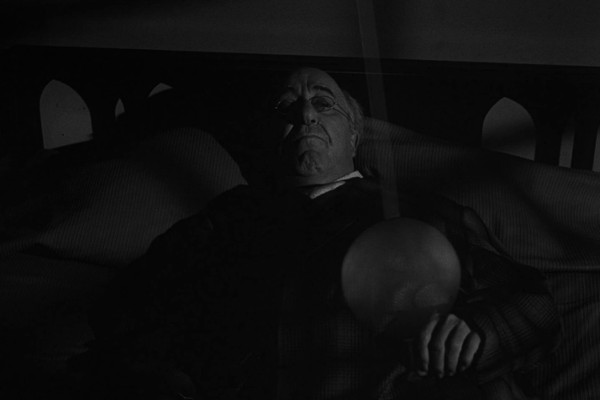
Season five has more input from new writers than any other. Although most of the work is done by Rod, Richard Mattheson, Earl Hamner Jr. and various writers posing as Charles Beaumont, there are six new writers drafted into the mix, including Jerry McNeely (The Self Improvement Of Salvadore Ross), Bernard C. Schoenfeld (From Agnes - With Love), Martin M. Goldsmith (What's in the Box/The Encounter), Adele T. Strassfield (Caesar and Me) and Anthony Wilson (Come Wander With Me).
This particular script brings us the only involvement from Richard De Roy, reworking a George Clayton Johnson script for the series. Johnson wasn't satisfied with changes made to his work, and so his final involvement with the original series saw his credit go out under the name "Johnson Smith". Inspired by the song "My Grandfather's Clock", it stars Ed Wynne in a whimsical performance which the audience are meant to find endearing, but is, in modern terms, more cloyingly sentimental. The one-note plot fails to really sustain even the 25 minute duration, as an elderly grandfather worries that he'll die if he doesn't keep his clock wound. The very cruel might find themselves watching this episode and wishing that it would wind down.
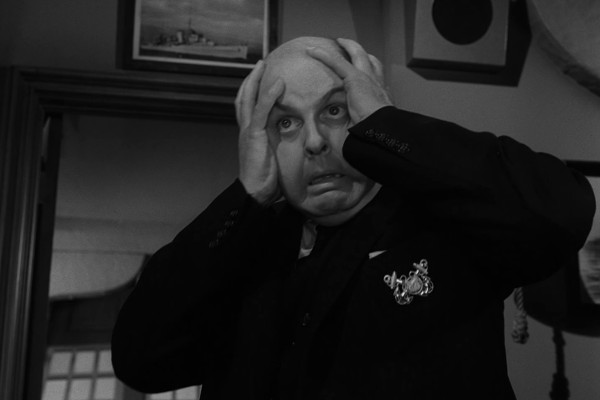
The Internet Movie Database has a love of the original series, with none of the episodes given below 5/10 in their rankings system. However, it's interesting to look at the bottom five, which are, at date of writing, Black Leather Jackets (6.4/10), The Mighty Casey (6.2), The Bard (6.0) and a joint last place for Cavender Is Coming and this episode (5.9 each).
As with Cavender, there's perhaps a tendency to feel for an underdog, and this story of a man who decorates his house and office as the deck of a ship is certainly fairly original. It's another broad Serling "comedy", whereby John McGiver's "Roswell G. Flemington" is a noise-obsessed blowhard. However, it's possible you might hate his staff more, who always shy off work when he's not around, body shame him behind his back and laugh at their own weak jokes. Flemington, for all his faults, at least feels sincere.
The episode ranks low here, and is one of the weaker entries, but doesn't deserve to be the joint-lowest of the entire series. This said, it is several minutes of shouting, yelling and other loud noises, which means it's not one to relax to. This wasn't quite the joint-lowest rated episode of the series, incidentally... lower-rated episodes on the IMDb come with four from the revival series: Azoth the Avenger Is a Friend of Mine (5.8, 2002), The Crossing (5.7, 1988), Last Lap (5.5, 2002) and The Wall (4.8, 1989).
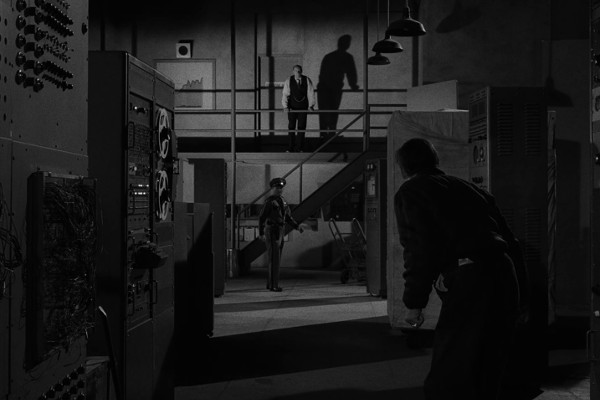
An odd episode, in that it has all the hallmarks of a Serling "comedy", but - apart from a joke reveal at the end - isn't. It has a larger-than-life eccentric at the heart of it, a quirky title, and a lot of laboured playing from the guest parts, and yet it's still a relatively straight story. Despite Serling's pledge to feature more black actors in the series, the programme has become so pure white at this stage that it's a genuine surprise to see Thalmus Rasulala as a technician. He's not quite unique to season five, but he's a rarity in that his race isn't referenced.
Featuring a factory boss who begins to replace everyone with machines, The Brain Center At Whipple's acts as a never-ending diatribe on the nature of man and industrialisation, with different characters taking it in turn to speechify. Serling's tendency to overwrite even has him putting his catchphrase "case in point" into the mouth of the main character, and there's not a single person involved who actually talks like a normal human being. Despite this, it has a certain style and a nice touch of direction that keeps it from the bottom rung.
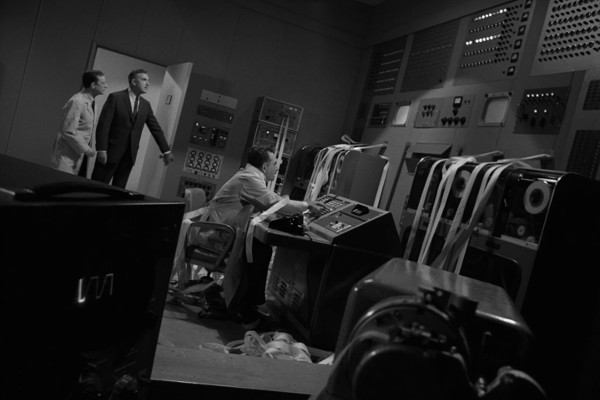
Of the 19 directors who worked on season five, ten of them had never worked on the Twilight Zone before, helming 20 episodes between them. Probably the most famous of the "new breed" was Richard Donner (The Omen, Superman...) who was behind half a dozen of them. Sadly, most of the material he was given was sub-par, from The Brain Center At Whipple's to Sounds And Silences to Come Wander With Me, and, unfortunately, this entry.
Featuring a decent performance from Wally Cox, who genuinely seems like the nerd he plays, it's a tale of a computer technician who, as the title suggests, has a computer fall in love with him. The only script from Bernard C. Schoenfeld, it's a shame that so many of the one-shot writers squandered their opportunity with Serlingesque "comedies" rather than something more representative of the series at its best. But this, while it won't set the world on fire, is okay if you're really in the mood... and the champagne scene is fairly amusing.
Airing on Valentine's Day, it's one of just three or four episodes this season where Rod Serling's introduction features him still smiling as the camera leaves... in nearly every other episode the smile leaves his face before we turn away from him, which can be unnerving and a little sinister. Rod returning to doing the introductions on set was a welcome relief after the grey screens of season four, but it's clear that, as with the programme, his heart was no longer really in it.